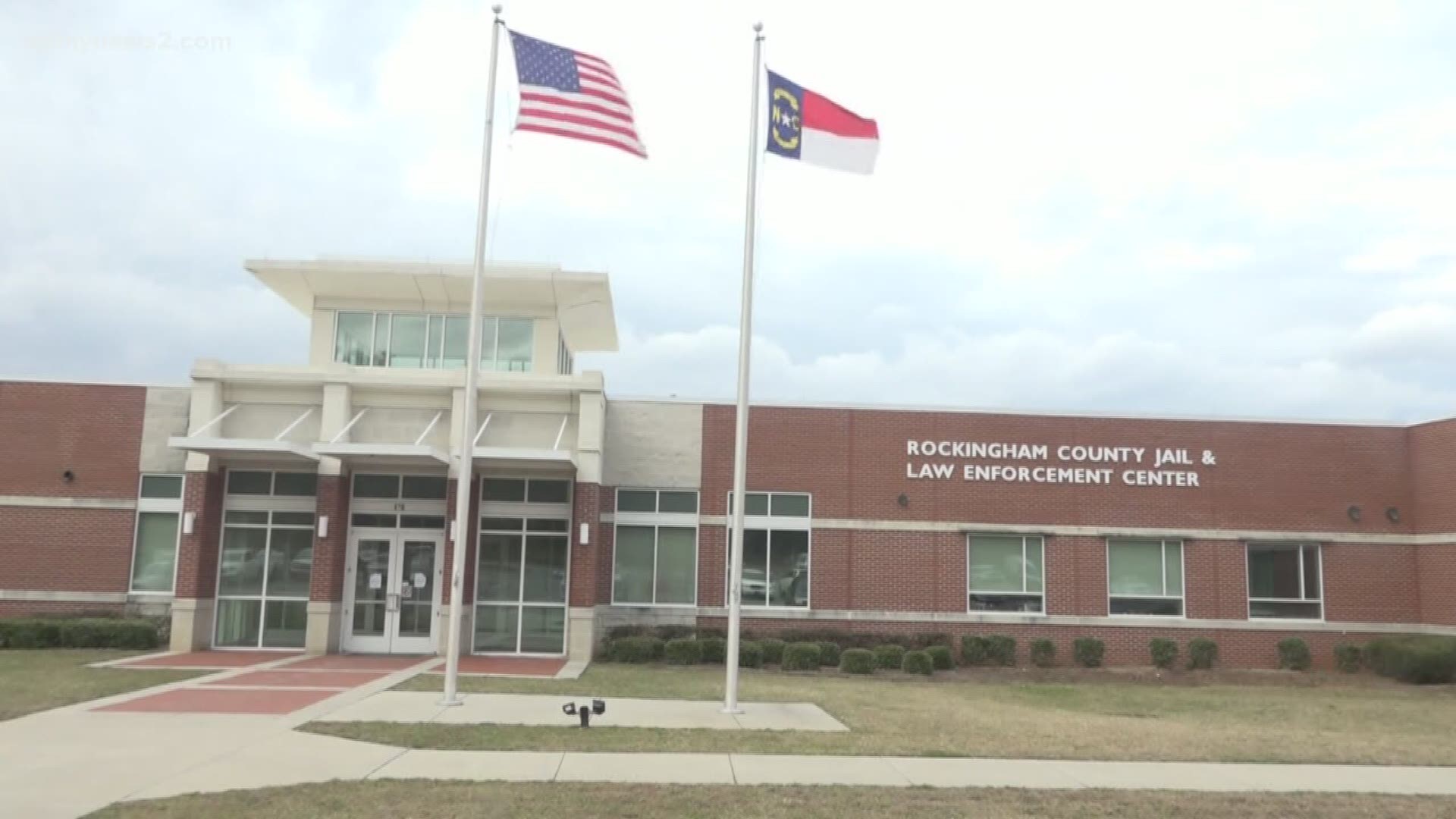RALEIGH, N.C. — Debate over immigration in North Carolina continues after Governor Roy Cooper vetoed House Bill 370, which would have required county sheriffs and jails to work more closely with federal immigration agencies in the removal of inmates who are in the country illegally.
On Saturday, President Donald Trump tweeted his criticism of the governor's veto, calling it a "terrible decision."
WFMY News 2 spoke with Rockingham County Sheriff Sam Page on Sunday about the now-vetoed immigration bill. Page is serving as the North Carolina state chairman of President Trump's 2020 re-election campaign.
"I think the president was spot on," said Sheriff Page about President Trump's tweet. "I'm very disappointed in the governor, considering he was the former attorney general for the state of North Carolina. It just seemed like he missed the point on public safety. I think the most important thing that we can do as sheriffs who run jails is note who is coming in and who is coming back out of our jails."
Page said many sheriffs in North Carolina already honor voluntary federal detainers, which are a request to local law enforcement from federal immigration officials to hold a person in custody until they can respond.
"But there wasn't a 100% uniformity on honoring federal detainers," said Page. "The most efficient way that we can deal with that program through the criminal justice system is to work with ICE officials, work with our state, local, and federal partners for the process at the appropriate time to release that person directly from jail to ICE officials so they can begin the deportation process."
Sheriff Page reiterated that he supports stronger border security to prevent illegal immigrant from returning to the U.S.
'Many legal flaws'
Other sheriffs have expressed their opposition to the bill, including Guilford County Sheriff Danny Rodgers and Forsyth County Sheriff Bobby Kimbrough.
Sheriff Kimbrough issued a statement expressing his support of the governor's veto just hours after the decision was released August 21:
“The three criteria I use to weigh my decisions are: Is it moral? Is it legal? And is it right? In light of those three questions, I did not agree with the proposed bill and I support the governor’s decision. In the county of Forsyth, we will continue to treat every person who lives here with respect. We will provide the highest level of service and protection, as we have always done.”
Sheriff Rodgers expressed concern in June that the new bill would violate inmates' Fifth amendment rights.
"The proposal and bills have many legal flaws, and violate due process provisions in the US Constitution," Rodgers said. "Our Sheriff is not above the constitution and upholds the law in Guilford County"
A number of organizations praised Governor Cooper for vetoing the bill, including the National Education Association, The Poor Peoples Campaign, NC NAACP, El Colectivo NC and El Centro Hispano.
What exactly does HB 370 say?
HB 370 would have added a number of new immigration rules for local jail officials to follow -- and the threat of removal if they do not comply.
The bill would have required local law enforcement to determine if prisoners are legal U.S. residents. If jail officials are not able to determine if the person is a legal resident, the jail administrator must then notify U.S. Immigration and Customs enforcement (ICE). Local jails would be required to hold inmates with detainers for up to 48 hours, which are currently voluntary.
The bill would also require local law enforcement to comply with requests from ICE to interview any inmate.
Any sheriff or police officer that does not follow this new law would be removed by a judge.
The bill was ratified by the house on August 20th, and it was then sent to the governor. It would have taken effect 30 days after its passage until Governor Roy Cooper vetoed the bill August 21.

